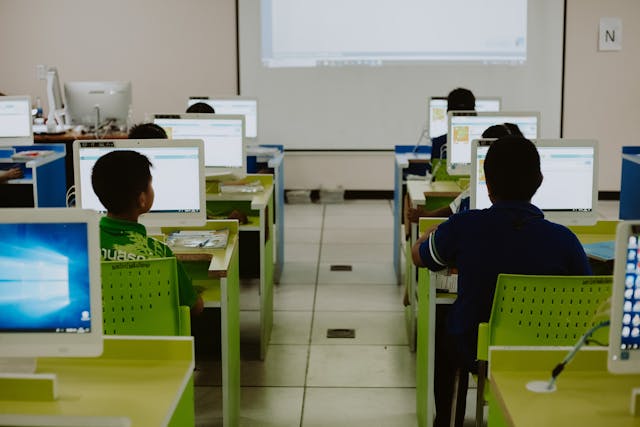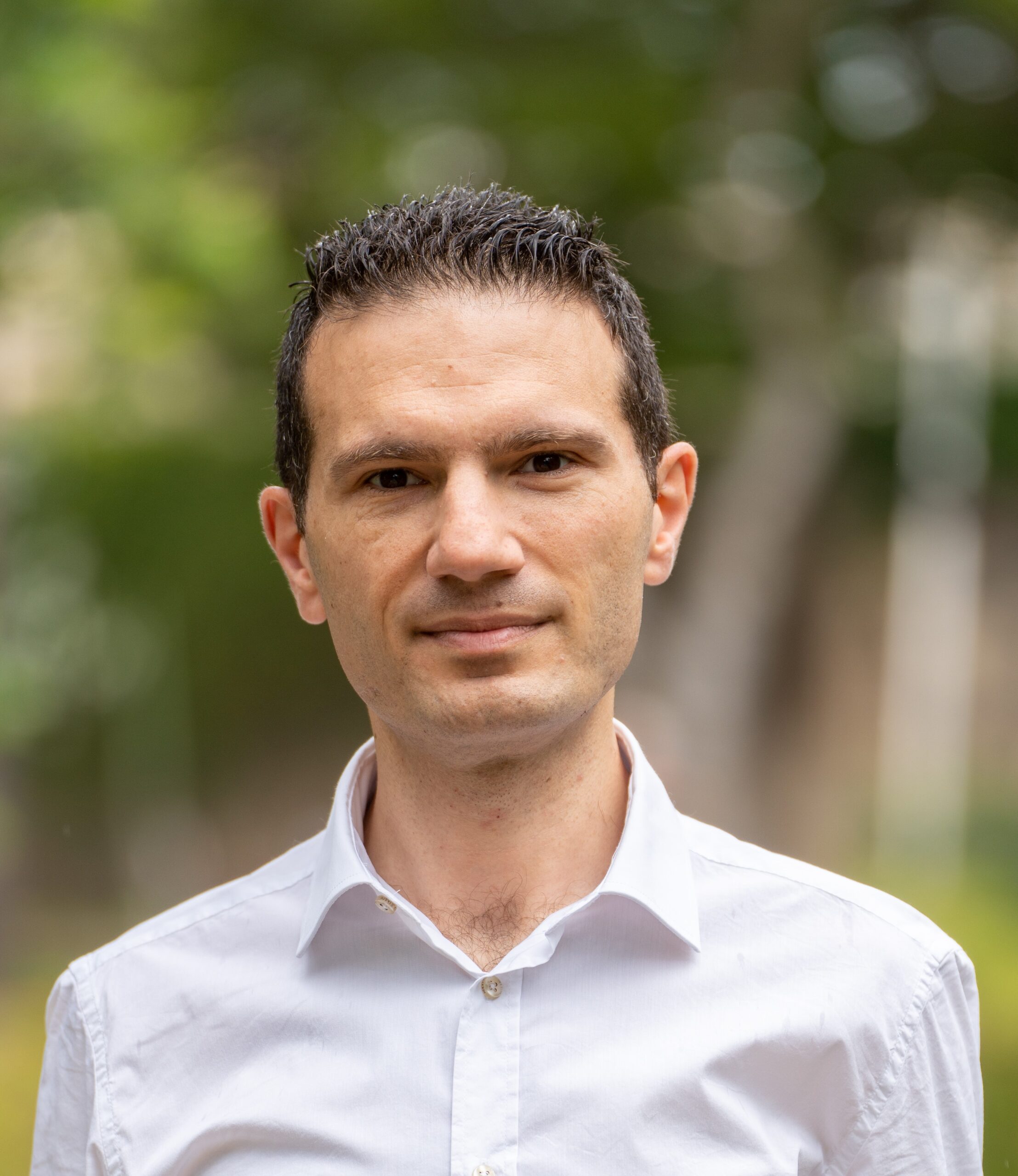In an era where AI has become one of the most disruptive forces across all industries, organisations have spent a lot of energy (and investment) in reshaping their traditional business models. The new opportunities that AI has, and continues to present to industries are mind-boggling, and it has become a matter of whether you change or become obsolete.
However, the reality is that the foundation of all industries remains our human capital, especially in Malta where we are predominantly a service-based economy. From a very young age of 4 months, our children are introduced to the education system through childcares and then progress up the traditional education ladder. We all know what this entails – children sitting and listening to teachers for long hours, teachers delivering a never-ending syllabus and constantly racing against time, kids forced to learn things by heart, and finally, a lengthy post on social media expressing satisfaction for passing the examinations and counting the number of likes and hearts we have received on the post!
So, while huge efforts are being made across all industries to continuously adjust to the technological driving forces, our education system, the foundation of our Maltese economy, appears to be drawing upon the traditional methodologies that have been in place for some time.
Allow me to express myself clearly here…..This is not, in my opinion, the educator’s fault.
Let’s face it – it was only recently, with the introduction of ChatGPT, that discussions about the impact of AI systems on our educational systems began.
And our first reaction……instead of embracing this new reality, universities like Oxford and Cambridge prohibited the use of these tools!
Why? Because the education system is accustomed to assessing its students through assignments and examinations while ChatGPT can now provide students with all the answers. Rather than adapting to this new reality, educators are now forced: not to give assignments, ask students to sit for assignments during class, or ignore that the student might be presenting a copy & paste of a ChatGPT response.
Okay….so what happened to analytical thinking? Isn’t this a critical skill for our society, and therefore, it is the educator’s responsibility to ensure that our children develop this vital skill during their educational journey?
How can AI support the Education system
As I have mentioned in my Introduction to AI post, Artificial Intelligence has been with us for ages. Tools have been developed in the past years that can assist our educators in their day-to-day activities, allowing them to focus on more value-added tasks. Some examples include:
- Grading Software – tools that use machine learning to automatically grade essays, papers, and tests in seconds, even in different languages.
- Tools that can automatically schedule lessons based on subjects, available educators, and other limiting factors.
- Tools that automate routine student forms, enrolments, and other paperwork, using customised user journeys depending on different factors.
In addition to these admin tasks, there are tools that can help educators deliver differentiated and individual learning as well as smart content, including intelligent digital textbooks and AR/VR-based learning.
And what about Gamification techniques? We all know how much our children enjoy playing video games (for better or worse). Through Gamification techniques, educators can make teaching more engaging and enjoyable using game elements, including levels, points systems, and badges. This motivates students to learn while helping them develop essential skills such as critical and problem-solving skills.
The nice thing is that AI can also step in and make recommendations to close any learning gaps!
Is AI a silver bullet?
Let’s hold our horses…..let us not get the wrong impression that AI is a silver bullet for the education system.
AI has its fair level of challenges. Let’s start with the obvious – privacy concerns. AI collects large amounts of data about students, their performance, behaviour, and online presence. It may also collect personal data, including family and health background/issues, to make its predictions and recommendations more effective. Whereas guardians might be comfortable sharing this information with educators, do they feel the same knowing that the information will be stored into a system, sometimes even in a cloud-based environment?
Then there is the biasing and discrimination issue. What if the data fed into the system is accidentally or intentionally skewed? That would mean that the output generated from the AI systems will also be skewed, leading to discriminatory responses/actions. For example, it might discriminate against certain students during admission or even produce inaccurate and unfair assessments.
The lack of human interaction is also an issue. In a world where kids are introduced to the virtual world from a very young age, it has already begun to show implications on their social skills, emotional intelligence, and holistic well-being. Moving to a technologically driven education system may continue weakening the bonds typically formed through direct human interaction. Furthermore, constant engagement with screens might affect mental health or induce technological-related stress.
Finally, the overreliance on technology may also impact our future generation’s critical-thinking skills and ability to learn independently. Our goal should be to teach students how to enhance their analytical skills, critical thinking, and ethical reasoning among others, rather than be entirely reliant on the outputs produced by AI systems.
So, while AI presents many opportunities to the education system, challenges must be considered.
However, let’s be frank….This is equally the same for all industries.
Every opportunity comes with its challenges, but while organisations are willing to proactively (or not) invest in their workforce for the promising future of the organisation, it seems that for years we took for granted the foundation of our society – the education system.
The Future of AI
Let’s be optimistic.
There seem to be efforts to move our education system to a new level. In its AI Strategy, the Malta Digital Innovation Authority (MDIA) has identified several action points specifically targeted towards the education system. It is refreshing to see some actions specifically targeted to our educators, aiming to develop their knowledge, skills, and awareness of AI. The actions look promising but I hope educators are given enough opportunity (and time) to upskill, reskill, and adapt to the new technological era. The complete list of actions can be found here.
While the merger of AI with the education system paints a picture of a future rich in possibilities, it is equally evident that the human touch remains irreplaceable. As educators, technologists, parents, and stakeholders who are part of the whole education ecosystem, we need to stay focused on nurturing minds, fostering empathy, and arming our future generations with the right skills, attitudes, and creativity to become the leaders of tomorrow.
I’m Jonathan Spiteri, and I bring a wealth of experience in innovation, strategy, agile methodologies, and project portfolio management. Throughout my career, I’ve had the privilege of working with diverse teams and organisations, helping them navigate the ever-evolving landscape of business and technology. I’ve also earned multiple prestigious certifications, such as Axelos Portfolio Director, SAFe® 6 Practice Consultant, Organisation Transformation, Project Management Professional (PMP), TOGAF 9.2, and Six Sigma Black Belt. These qualifications reflect my dedication to achieving excellence and my proficiency across various domains.



